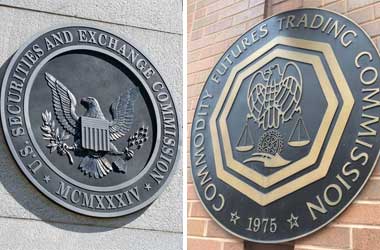The SEC and CFTC Bring Civil Charges against FTX, Alameda, and SBF (III of IV)

Matt Stankiewicz, Partner at The Volkov Law Group, continues his blog series on FTX, discussing the civil charges filed by the SEC and the CFTC. He can be reached at [email protected].
In conjunction with the DOJ’s criminal indictment, the SEC brought civil charges against SBF. The SEC charged SBF with orchestrating a scheme to defraud equity investors in the FTX exchange (FTX Trading Ltd.). The SEC charged SBF with violating the anti-fraud provisions of the Securities Act of 1933 and the Securities Exchange Act of 1934, seeking injunctions against future securities law violations; an injunction that prohibits Bankman-Fried from participating in the issuance, purchase, offer, or sale of any securities; disgorgement of his ill-gotten gains; a civil penalty; and an officer and director bar.
The SEC also clearly noted that investigations in related violations committed by other entities and individuals are still ongoing. It appears likely that more charges will follow, though it is rumored that at least one, if not more, executives at FTX are cooperating with law enforcement.
The SEC complaint alleges that, beginning in May 2019, FTX raised approximately $1.8 billion from investors around the world, the majority of those funds coming from 90 investors based in the US. According to the 278-page complaint, SBF specifically concealed from investors:
- the undisclosed diversion of FTX customers’ funds to Alameda Research LLC [“Alameda”], his privately-held crypto hedge fund;
- the undisclosed special treatment afforded to Alameda on the FTX platform, including providing Alameda with a virtually unlimited “line of credit” funded by the platform’s customers and exempting Alameda from certain key FTX risk mitigation measures; and
- undisclosed risk stemming from FTX’s exposure to Alameda’s significant holdings of overvalued, illiquid assets such as FTX-affiliated tokens.
The complaint references SBF’s false public persona, noting he held himself out to be the “responsible leader of the crypto community,” all while diverting customer and investor funds “for his own personal benefit and to help grow his crypto empire.” SBF also told his investors that FTX had “top-notch, sophisticated automated risk measures in place to protect customer assets,” despite either building ways that he could personally circumvent such measures, or just flat out lying that those measures even existed in the first place.

The SEC alleges that SBF began diverting customer funds to Alameda from its inception. SBF allowed Alameda to utilize these funds for its own investment strategies, to make venture investments in other companies, and to purchase extravagant real estate for its executives. Alameda was afforded a near limitless line of credit from FTX, which was funded directly by customer funds. Many customers were directed to make their fiat deposits (in US dollars) directly into a bank account controlled by Alameda. None of this was public knowledge, nor was it disclosed to investors. According to the complaint, FTX even had accounting procedures for this process that appears to be designed to obfuscate the funds in its internal system to hide it from even FTX’s own employees.
As the cryptocurrency market began its perennial bear market, Alameda’s lenders demanded payment on various outstanding loans. In order to pay these loans, SBF directed Alameda to continue drawing against FTX customer funds. SBF also directed his team to hide these drawdowns on the company’s balance sheet. As the market continued to sink, SBF continued to direct Alameda to draw on customer funds, including for use to pay personal loans to SBF and other FTX executives worth hundreds of millions of dollars. Furthermore, as other companies in the industry were faltering, FTX pursued an aggressive acquisition strategy and made several transactions under the guise of “bailing out” various popular crypto companies. Instead, SBF stated privately that these acquisitions were made solely to gain access to additional sources of capital in an attempt to cover the loss of customer funds.
The SEC has come under fire during the FTX debacle for its failure to protect users. The SEC is frequently criticized by the cryptocurrency industry for its lack of regulatory clarity. The new technology does not precisely fit into the typical Howey test, which establishes the test for what constitutes a security, and the SEC has failed to issue any kind of guidance that would give clarity on the situation. Instead, the agency appears to be regulating by enforcement. Ultimately this appears to not only be detrimental to the industry by stymieing innovation, but it also appears to have the perverse effect of harming the constituents that the SEC was established to protect. If anything, that lack of regulatory clarity pushed FTX to establish its headquarters outside of the US and instead in the Bahamas, a jurisdiction that is not exactly known for its concern with corporate transparency. Due to this, Democrat Congressman Ritchie Torres has requested the Government Accountability Office open an investigation into the SEC and Chairman Gary Gensler for its “failure to protect the investing public.”
Meanwhile, the CFTC filed its own complaint against SBF, FTX, and Alameda. These charges all stem from the same set of facts as the DOJ and SEC cases. In this case, the CFTC seeks restitution, disgorgement, civil monetary penalties, and permanent trading and registration bans.
The CFTC complaint helps put the exchange’s size in perspective, noting right off the bat that the peak daily trading volume on FTX was over $20 billion. Again, that’s $20 billion per DAY. In addition to solid technological underpinnings and a quality user interface, FTX managed to build itself into a top exchange by cultivating an image of safety and reliability. In a 2022 Super Bowl commercial, FTX touted itself as “the safest and easiest way to buy and sell crypto.”
One of FTX’s key features, at least outside of the US, was its variety of cryptocurrency commodity products, such as futures, options, swaps, and derivatives. These types of products cannot be offered to US customers without specific licenses and regulatory approval. The CFTC’s complaint notes that while FTX purported to funnel US customers to certain US-specific exchanges that restricted these products, they very often turned a blind eye when users easily circumvented these controls. This was always an open secret about FTX and many other exchanges that offered these products.

Within the complaint, the CFTC includes an important point for the overall cryptocurrency industry. In the Statutory Background and Legal Framework section, the CFTC clearly notes that “[c]ertain digital assets are ‘commodities,’ including bitcoin (BTC), ether (ETH), tether (USDT) and others, as defined under Section 1a(9) of the Act, 7 U.S.C. § 1a(9).” Up to this point it was believed that both the CFTC and SEC viewed Bitcoin as a commodity. Ethereum’s status was as bit murkier, but this statement appears to help settle the matter as to Ethereum’s regulatory status.















